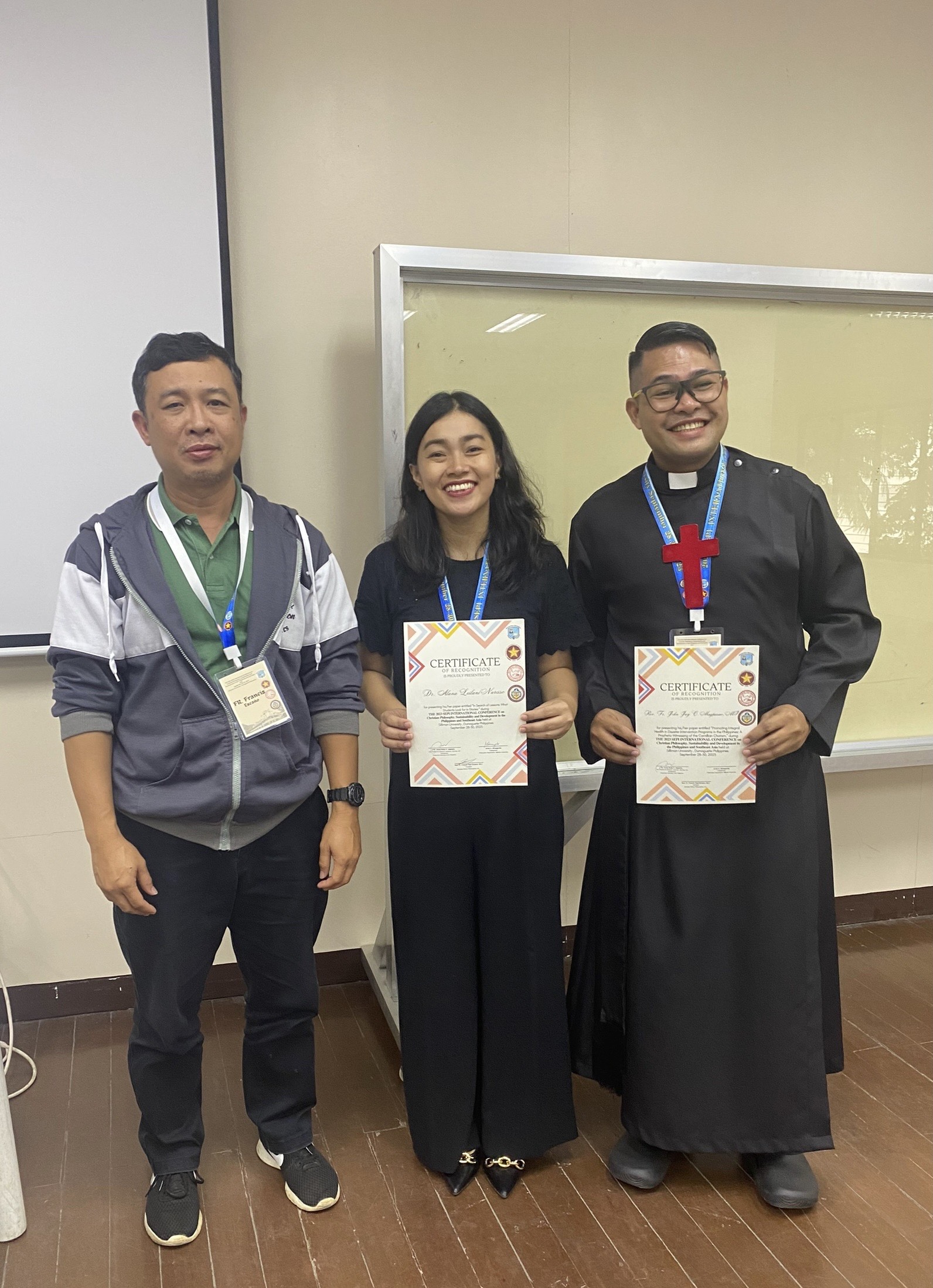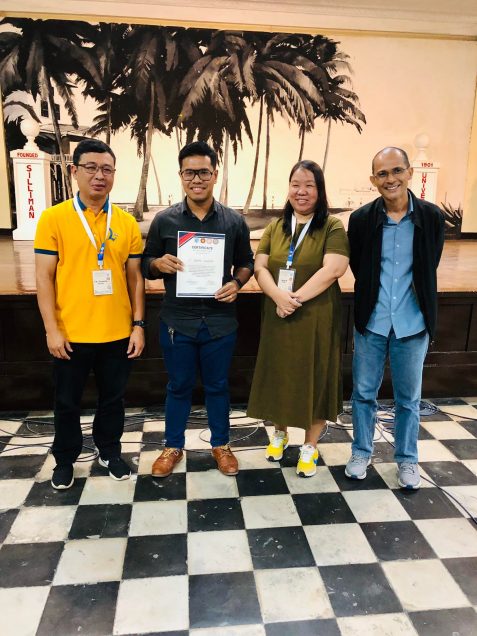
SU faculty members named best presenters in int’l confab on Christian philosophy, sustainability & development

Dr. Alana Leilani C. Narciso (middle), associate dean of the SU College of Arts and Sciences and faculty member of the English and Literature Department
Silliman University (SU) faculty members Dr. Alana Leilani C. Narciso and LJ Zaphan Lamboloto received the “Best Oral Presentation” award for their individual presentations during the 2023 Societas Ethica Philosophica, Inc. (SEPI) International Conference on Christian philosophy, sustainability, and development, September 28-30, 2023 at SU.
Narciso, the associate dean of the SU College of Arts and Sciences and faculty member of the English and Literature Department, presented her research paper titled, “In Search for Lessons: What Students Look for in Stories.”
Lamboloto, a faculty member of the Philosophy Department, presented his research titled, “Modern Christianity and Theological Syncretism: A Critique of Ecumenism.”
Lessons in stories
For her paper, Narciso surveyed 148 undergraduate students taking Literature classes, mostly aged 17 to 22 years old, on what they look for in stories and found that they look for lessons.
“Interestingly, lessons for the students mean something that has a positive impact. In addition, a considerable number manifested their intention to ‘apply’ the lessons and insights they learned as ‘guide’ to live their lives,” wrote Narciso in her paper’s abstract.
The results of her research, said Narciso, “strongly suggest that students’ reading experience in stories may benefit from ethical inquiry” because “stories have powerful (ethical) invitations.”
Narciso said her study offers information for literature teachers to “overcome the discomfort at dealing with lessons and to embrace the opportunity to help students develop an ethos that is, in Wayne Booth’s words, ethical at its center” and to “teach students to read both efferently and aesthetically as Rosenblatt suggests.”
“While the result of our students’ reading experiences may not be immediately detected, the aim is for teachers to constantly provide opportunities for instances of ethical engagement and confrontation,” said Narciso.
Critique of Ecumenism
Lamboloto’s paper presents key arguments against ecumenism, which he described as a movement that “attempts to capture the universality of Christianity, despite its diverse traditional practices and beliefs across Christendom.”
“Though the ecumenical movement intends to genuinely unify the body of Christ and reconcile differences in methods of worship, sacraments and practices, and more importantly, the theological claims behind each church denomination, I argue that there are doctrinal differences that are distinct and exclusive in nature that makes the prospect of ecumenism unachievable,” he wrote.
In his paper, Lamboloto argued that “while ecumenism is a potent movement in achieving peace and cooperation and potentially, a model for a productive interreligious discourse, it holds the tendency to convert modern Christianity into the slippery slope of theological syncretism.”
Lamboloto’s paper highlights “key doctrinal differences and theological irreconcilability among the Christian denominations that [make] the vision of ecumenism unrealistic” and includes an analysis of relevant scriptural texts.
He also said the paper “mainly explores the exclusivist theological position of Christianity that does not coincide with the theological tolerance of the ecumenical movement.”
“This work is not to invalidate the work that unified the churches which, evidently, catered to better understanding of the differences and common ground that could be the initial groundwork of ecclesiastical reconciliation and reunification. Thus, this work will not argue or insinuate notions of distrust and affective doubt brought about by the long-standing schism among different church traditions rather a problematization of the theological distinctions exclusive to key Christian denominations, in particular, Protestantism and Roman Catholicism that makes the ecumenical movement inauthentic and implausible,” he added.

LJ Zaphan Lamboloto (2nd from the left), faculty member of the Philosophy Department


